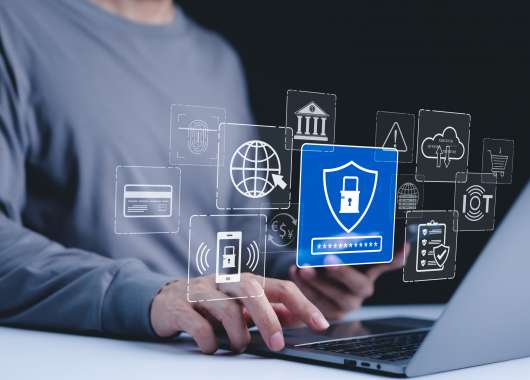The short answer is, yes, it does. Getting employees to work from home undoubtedly increases the risk of company-related cybersecurity incidents. Read more to find out some of the main challenges and how to deal with them. Since the pandemic, when working from home became fully mainstream, businesses have saved significantly by having remote workers. The everyday expense items such as office space and transportation have decreased considerably, making a positive impact on corporations’ bottom lines. Apart from the financial benefits, the new wave of people working from home has also led to improvements in employee retention, access to a competitive and diverse workforce, reduced equipment costs, and… an increase in cybersecurity incidents. Remote workers are more distracted when it comes to cyber security and appear to be easier targets when working from home. Some of the issues businesses often observe consist of the following;
- Increased cases of data breaches
- Unauthorized access to sensitive company information
- Inadequate cyber security training with a lack of oversight
- Hardships in managing various locations and devices connected to company networks
Data breaches start from remote workers
Remote working offers numerous benefits for both employers and employees, but a single data breach can often ruin a business. Small and medium-sized enterprises are often unprepared to deal with cyberattacks and breaches, and frequently, such data breaches happen after a mistake made by a remote worker. Remote workers are certainly not the only ones who make mistakes, but they are an easier target for hackers, and many breaches have started with compromised systems of remote workers.
Hidden dangers of remote workers
Working from home might also mean that some employees might feel more relaxed when leaving a PC screen on without logging off, making it accessible to other people living in the same household. A sketchy roommate might decide to take advantage of sensitive information left in the open, or a toddler might choose to sit on daddy’s desk and start pushing buttons, causing irreversible trouble. Sometimes, even relationship feuds can escalate into trouble, as an estranged partner may decide to seek revenge against a former partner and attempt to ruin their career by damaging their employer.
You might be interested in: 10 Cybersecurity Measures That Experts Follow (and You Should, Too!)
Security procedures not taken seriously
While businesses have certainly improved over the years in terms of cybersecurity hygiene, sometimes cybersecurity training principles do not get fully enforced due to a lack of oversight. A worker working from home knows that a supervisor will not be able to physically catch an employee who is being careless and refusing to log off from a computer while away from it. An employer won’t know if the privacy glass is installed on a monitor, either.
The strain on IT administrators and networks
Working from home puts a severe strain on IT admins, who have to deal with employees accessing company files from various locations and using different devices that work on other platforms and different operation systems. Having so many different types of devices and operating systems entering a network can be a recipe for disaster when it comes to securing a company network. Hackers notice such trends and are always looking to mimic normal behavior and exploit loopholes.
You might be interested in: How to secure your portable devices against cyberthreats
How to remedy the problem by not having to deal with getting employees back to work full-time?
The solution is very similar to dealing with other work-from-home related issues. For example, if workers start feeling isolated, employers use tactics to encourage physical connection, such as organizing team-building events or requiring everyone to attend monthly company meetings. The secret to cybersecurity success is similar – employers have to advocate for better cybersecurity behavior and provide ongoing training continuously. Human errors decrease when employees realize the damage that poor cybersecurity hygiene can cause. Conducting ongoing training will undoubtedly have a positive impact on preventing cybersecurity threats. Employees will be less susceptible to phishing scams or other malicious attempts from bad actors.
If the budget allows it, have employees use only company devices. Personal devices are hard to secure. Business equipment can be protected using corporate security tools, like a company VPN. It encrypts all data transmitted between remote devices and company servers- even on public Wi-Fi network. VPNs enable IT administrators to monitor usage and identify any suspicious activity.
Having employees work from home can be a challenge for businesses. Still, it can be beneficial. Businesses can use saved funds for better cybersecurity tools, new equipment, and education. Prepared, caring workers with the right tools are more vigilant, responsible, and engaged in IT security.






